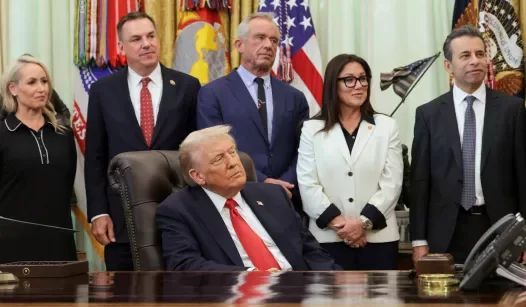In recent discussions surrounding reproductive rights and healthcare, former President Donald Trump’s stance on in vitro fertilization (IVF) has sparked significant debate. IVF has revolutionized the way many families conceive, allowing couples facing infertility to bring cherished children into their lives. However, the process of IVF is not without its ethical complexities, particularly concerning the creation and potential destruction of embryos.
At its core, IVF involves several steps, including the stimulation of a woman’s ovaries to produce multiple eggs, which are then retrieved and fertilized in a laboratory setting. This method often results in the creation of more embryos than are ultimately used in a successful pregnancy. While many of these embryos may be stored for future use, others may be discarded or allowed to perish, raising profound moral questions about the status of these embryos.
Trump’s administration has taken a firm stance on various reproductive health issues, often aligning with more conservative viewpoints. His recent orders regarding IVF have reignited discussions about the ethical implications of embryo creation and destruction. Supporters of Trump’s policies argue that protecting potential life is paramount, while opponents contend that such measures could limit access to essential fertility treatments for those who need them.
As the debate unfolds, it is essential to consider the broader implications of these policies on families seeking IVF. For many, the ability to conceive through assisted reproductive technologies represents hope and the possibility of building a family. Limiting access or imposing strict regulations could have far-reaching consequences for individuals and couples struggling with infertility.
In addition to the immediate impact on reproductive health, these policies also raise questions about the intersection of politics and personal choice. The decisions surrounding fertility treatments are deeply personal, often influenced by individual beliefs, medical advice, and personal circumstances. As policymakers navigate these complex issues, it is crucial to prioritize the needs and rights of families while also addressing ethical considerations.
The conversation surrounding Trump’s IVF policy highlights the ongoing tension between reproductive rights and the ethical implications of assisted reproductive technologies. As this dialogue continues, it is vital for all stakeholders—policymakers, medical professionals, and families—to engage in thoughtful discussions that respect personal choices while addressing the moral stakes involved.
Ultimately, the future of IVF in the United States may hinge on how these ethical considerations are balanced with the rights of individuals seeking to build their families. As the political landscape evolves, so too will the conversations surrounding reproductive health, making it essential for those affected to stay informed and engaged in the discussion.
